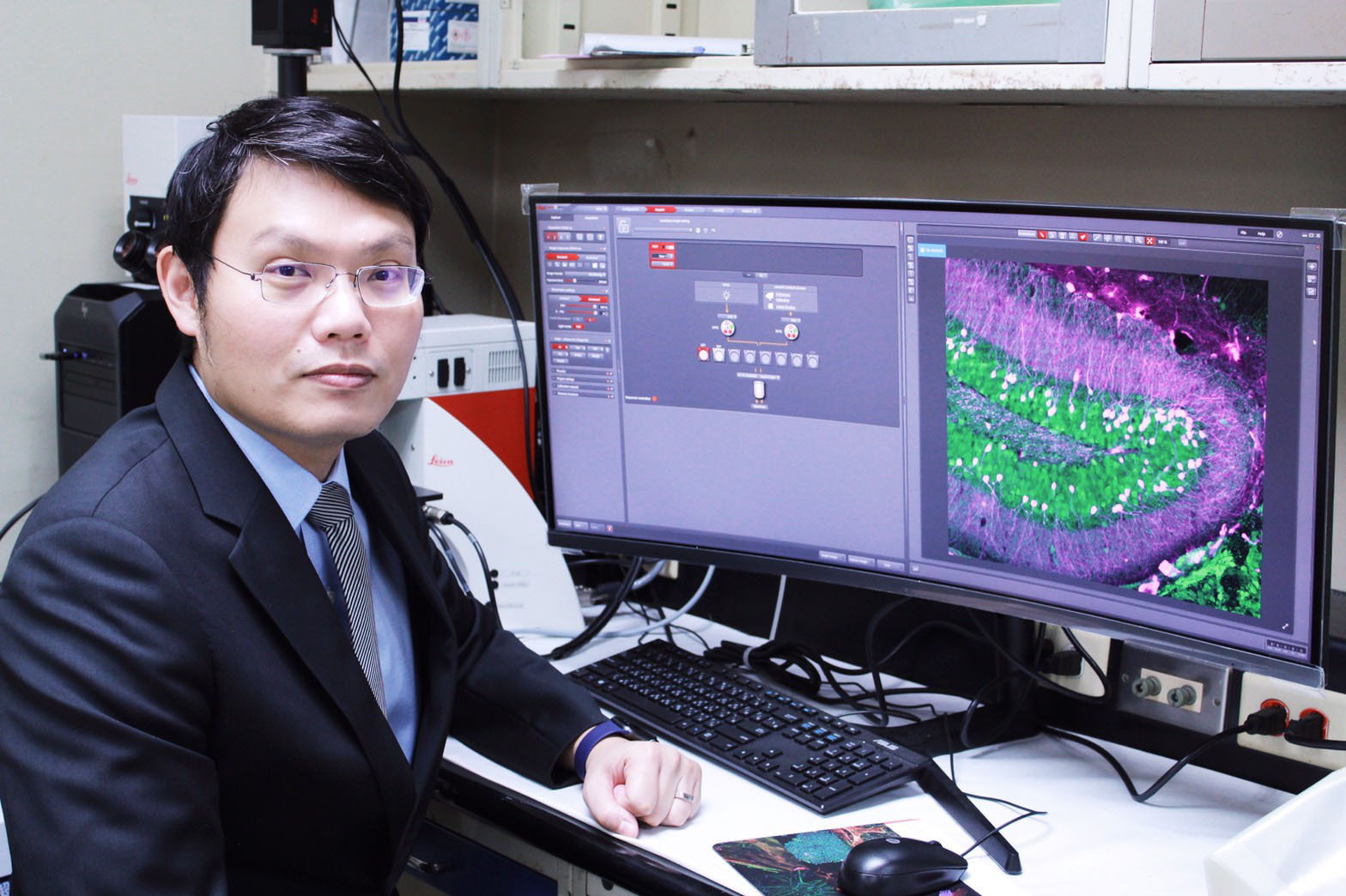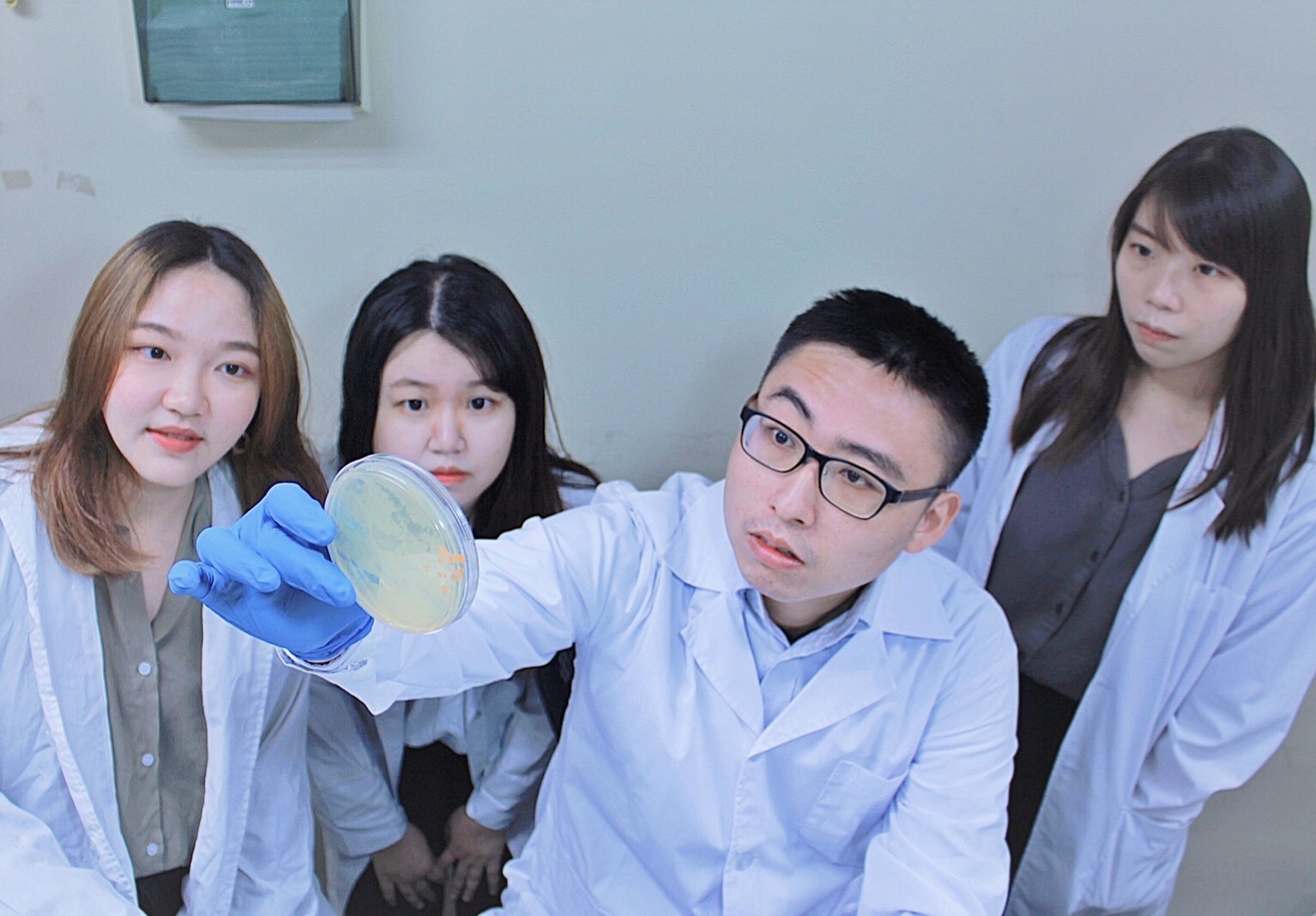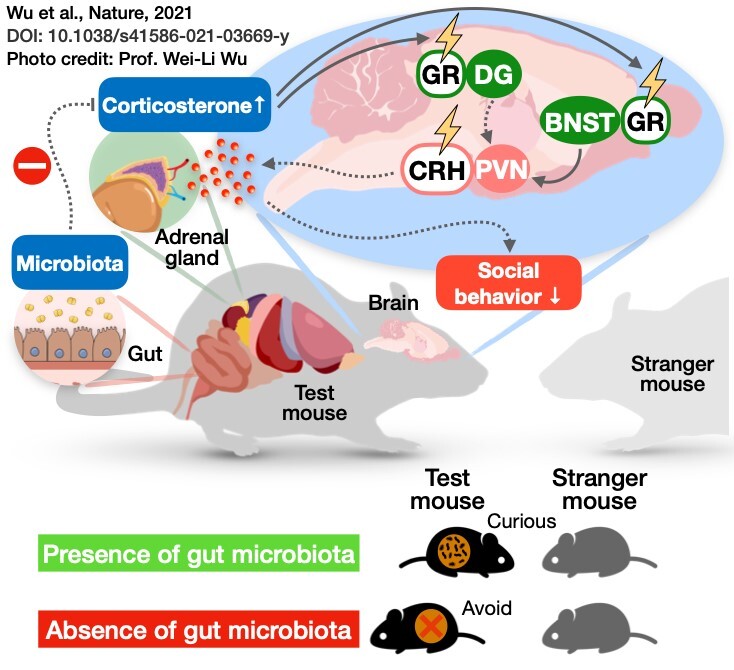NCKU Wei-Li Wu’s Research Published in Nature, Promoting Taiwan’s Biomedical Science to the Global Scientific Community
Written by NCKU News Center. Image credit to Wei-Li Wu.
“One thing I learned in the United States, is ‘don’t be shy to ask.’ After asking the lab manager, technicians, postdocs, and graduate students in the lab next door, I finally had the opportunity to operate a complete set of million-level brain stereotaxic instrument, which I borrowed. I also asked senior technician from Taiwan to share their unique brain microinjection technique and quickly learned how to operate the instrument. Making the best use of the time slots that are not booked, I often carry out surgeries from 5 AM in the morning till midnight. I was able to complete many challenging brain microinjection experiments this way.” As the first author and corresponding author of the paper, Assistant Professor Wei-Li Wu of the Department of Physiology, College of Medicine, National Cheng Kung University (NCKU), spent 2 years and 5 months submitting the paper, together with a series of experiments that stretched the overall process to 6 years, before submitting it to the internationally renowned journal “Nature,” where he finally saw the fruits of his endeavors published.
This research took a long period of time from experiment to publication. Wu had numerous setbacks and, at several moments, wanted to give up and re-submit the paper to other journals. “Fortunately, I persisted! I also had a profound realization that doing the best at every stage is really crucial.”

The NCKU team, led by Professor Wei-Li Wu of the Department of Physiology, solved the mystery of how gut microbiota influence animal social behaviors. Their results were published in the top scientific journal Nature.
The research team, led by Wei-Li Wu, discovered that gut microbiota can regulate the stress response and social behavior of animals through specific neural circuits in the brain. Social behavior can increase survival, provide a sense of security, and reduce energy expenditure in social animals. The team’s experiments verified their discovery that the Enterococcus faecalis inhibits stress hormone in mice and promotes their social behavior through the bidirectional communication mechanism between the intestine and brain. The findings were published in the prestigious scientific journal Nature on June 30th, 2021.
“The intestine is actually a very complex organ inhabited by thousands of different bacteria, the number of which is as high as the trillions, leading to countless possibilities that can affect experimental results.” Wu’s article contained at least 167 data panels, which were the result of the accumulation and stacking of multiple robust experiments. Wu encouraged graduate students. “It’s really a headache to think that there are still many unsolved questions in biological sciences, but you don’t need to be intimated by this fact. Keep exploring with curiosity, and you will eventually connect the dots to find the truth. That’s exactly what I did for this paper.”
Wu remarked that physiology involves many complex body system interactions, and there are still many unknowns that require exploration. Only three possibilities will show up in the experiments: no difference between the groups, or an increase or decrease in the experimental group. The result, which usually falls into one of the three situations above, are sometimes difficult to predict during the experiment. Each result should lead us to different predictions, according to which we can design the subsequent experiment. “There are very few absolute things in biology. If you insist on perfecting everything at the moment, you can finally put them together like a jigsaw puzzle and discover the truth.”
“I often encourage and remind students to look back at completed experiments to see if there’s anything happening.” Wu provided an example: if the result comes from the mice falling sick for unknown reasons and exhibiting different behavior patterns, it is not the result that they want. Moreover, when observing animal behavior, for example, the overall 30-minute analysis of behavior does not necessarily yield different results, but plotting the analysis into 6 sessions of 5-minute analyses and carefully reviewing each may reveal the difference.
On the morning of July 14th, 2021, the Ministry of Science and Technology (MOST) held an online conference in Taipei. According to MOST, the research results have solved the mystery of how bacteria living in the intestine affect the host’s social behavior, the deficits of which are one of the symptoms of disorders such as autism, schizophrenia, depression, and social anxiety disorder. The results promote Taiwan’s strength in basic scientific research to the global scientific community. Dr. Hong-Chen Chen, Director General of MOST’s Department of Life Sciences, said that Wu’s research is an important scientific breakthrough that has attracted attention in Taiwan and abroad. A younger-generation scholar cultivated in Taiwan, Wu has led Taiwanese students exploring important areas and publishing their results in top international journals, setting an example for domestic scientific research.
Dr. Huey-Jen Jenny Su, President of NCKU, said persistence and self-discipline make no journey wasted. Wu persisted in his research for many years to have his work published in Nature. The joint achievement in the dedicated research by newly recruited teachers in NCKU is the result of a new scientific research attitude initiated by three generations of scholars across different age groups.

Assistant Professor Wei-Li Wu of NCKU’s Department of Physiology believes that it is important to perfect every element at each stage during research
Wu majored in marine biology and was nurtured by various ecological, taxonomic classification, and evolutionary theories. His master’s thesis focused on the relationship between neurotransmission and body colors during the fights of Macropodus opercularis (paradise fish). For his doctoral dissertation, Wu explored how the peripheral nervous system affects the behavioral output regulated by the central nervous system. Subsequently, his postdoctoral research was initially related to the effects maternal immune response has on the neural development of the fetus and the behavioral development of the offspring; the later part of his postdoctoral research focused on how gut microbiota regulate nervous and behavioral performance through the gut–brain axis.
The focus of his research at each stage seemed to differ. Wu believes that his results today are an accumulation of different experience. “The seemingly different paths I traveled in the past seem to be connected at a certain point in time. Take this study as an example, the gut microbes are super-complex living organisms, and the intestine is like a miniature ecosystem. To determine how they communicate with the brain and verify the types of bacteria that are actually involved, a different point of view can be initiated if the underlying theoretical mechanism is considered from an ecological perspective.”
Nature is a top scientific journal. In June 2021, it was ranked first place in the category of multidisciplinary sciences in the latest Journal Citation Report, and its current impact factor is 49.962. Nature has extremely stringent review process. Wu stated that the research topic, which involves communication mechanisms between the brain and the intestine, as well as how the microbes in the intestine affect the brain’s neurological response, is fairly complicated, which in turn leads to difficult experiments. The process of research and manuscript submission took 6 years and carried on from United States to Taiwan, including 3 years of research at the California Institute of Technology and another 3 years at NCKU. Conducting a complete study like this is no easy feat.
During his 6 and a half years as a postdoctoral researcher at the California Institute of Technology, Wu’s research on maternal immune response and autism was hampered by the death of his postdoctoral mentor, Professor Paul Patterson, a pioneer and renowned neurobiologist, due to brain tumor. He switched to a different subject and research area in the middle of his postdoctoral research. He relocated to the Sarkis Mazmanian Lab of Microbiology and Immunology, and although the research focus of the laboratory has shifted to neuroscience, it still had some limitations. For example, the laboratory at that time did not have a stereotaxic rig for mice. In the early stage of his experiment, Wu pressed on without the assistance of equipment and with scarce manpower. This sharpened his communication skills to find the resources, allowing him to fully understand the benefits of having a broad social network in academia.

Young scholars publishing important research results is the outcome of a new research attitude in Taiwan, established by three generations of scholars working together. Left to right: Tzu-Hsuan Yao, Yuan-Yuan Lin, Chia-Wei Liou, Tzu-Ting Lai.
With Wu’s lab still in its growing following his third year at NCKU, Wu was grateful for the kindness, support, cultivation, and tolerance that NCKU showed toward junior faculties. He was also thankful to Chia-Wei Liou, Tzu-Ting Lai, Yuan-Yuan Lin, and Tzu-Hsuan Yao, four NCKU students, each with their own research style, who invested extra time and effort at different stages and braved through difficulties together, gradually expanding the research team. Wu also expressed his gratitude to the Professor Sarkis Mazmanian in the Division of Biology and Biological Engineering at California Institute of Technology for enormous contributions overseas.
According to Wu, the current discovery of E. faecalis through animal experiments has verified that E. faecalis can help reduce stress in mice and regulate their social behavior. However, E. faecalis also has extremely strong antibiotic resistance. If the components or metabolites of E. faecalis that reduce stress hormones and increase social behavior can be successfully isolated, they will have high application value. The team will continue a series of studies to determine how E. faecalis or its metabolites affect the host’s stress responses.
NCKU solves the mystery of how a gut bacterium inhibits stress hormones and affects social behavior through brain neural circuits
A research team led by Assistant Professor Wu Wei-Li in the Department of Physiology, NCKU, discovered that a gut bacterium, Enterococcus faecalis, inhibits stress hormones and affects social behavior through brain neural circuits.
The research first verified that germ-free mice (no symbiotic bacteria in their bodies) and mice that received antibiotics for bacterial elimination in adulthood had lower levels of social behavior with individuals of the same species. However, the levels of the stress hormone in their blood, corticosterone, were higher. When the research team used drugs to block the signaling pathway of corticosterone, or surgically removed the adrenal glands to block the main source of corticosterone production, they found that the social behavior of germ-free and antibiotic-treated mice was restored.

Role of gut microbiota in the gut–brain axis and the pathway regulating host behavior
Their study also discovered that the precise removal of corticosterone receptors—glucocorticoid receptor—in specific brain areas, or the use of chemogenetic to inhibit corticotropin-releasing hormone neurons (the upstream pathway of corticosterone secretion), can reduce stress hormone levels in mice after antibiotic treatment and increase their social behavior. By contrast, in mice with normal gut microbiota, using chemogenetic to activate corticotropin-releasing hormone neurons, or directly stimulating stress-responsive neurons in specific brain areas, will cause impairment in the social behavior following stress.
The research team discovered that providing a specific gut bacterium, E. faecalis, in the intestines of mice treated with antibiotics can reduce their stress hormones and increase their social behavior, successfully cracking the secret code of the intestine and brain. This verified that gut bacteria regulate the stress response and social behavior of animals.
The Taiwanese students who participated in this study to assist in its completion included four NCKU students: Chia-Wei Liou (third author) of the Institute of Basic Medical Sciences, Tzu-Ting Lai (fifth author), Yuan-Yuan Lin (twelfth author), and Yao Tzu-Hsuan (thirteenth author) of the Department of Physiology. The study also involved a transnational collaboration with Professors Rustem Ismagilov and Viviana Gradinaru as well as their teams at the California Institute of Technology.
Further reading:
Microbiota regulate social behavior via stress response neurons in the brain Wei-Li Wu et al. Nature, 595, 409–414. (2021)
Provider: News Center
Date: 2021-08-05
Click Num:
Share

